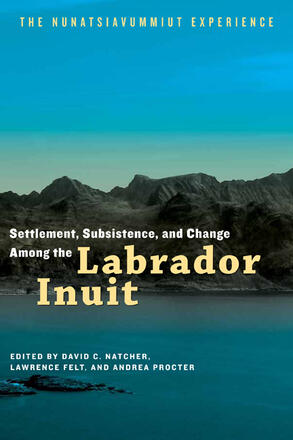
Settlement, Subsistence, and Change Among the Labrador Inuit
The Nunatsiavummiut Experience
La description
On January 22, 2005, Inuit from communities throughout northern and central Labrador gathered in a school gymnasium to witness the signing of the Labrador Inuit Land Claim Agreement and to celebrate the long-awaited creation of their own regional self-government of Nunatsiavut. This historic agreement defined the Labrador Inuit settlement area, beneficiary enrollment criteria, and Inuit governance and ownership rights. Settlement, Subsistence, and Change Among the Labrador Inuit explores how these boundaries – around land, around people, and around the right to self-govern – reflect the complex history of the region, of Labrador Inuit identity, and the role of migration and settlement patterns in regional politics. Comprised of twelve essays, the book examines the way of life and cultural survival of this unique indigenous population, including: household structure, social economy of wildfood production, forced relocations and land claims, subsistence and settlement patterns, and contemporary issues around climate change, urban planning, and self-government.
Reviews
"Informed and informative, and a body of impressive seminal scholarship, Settlement, Subsistence and Change Among the Labrador Inuit is very highly recommended for academic library Canadian History and Aboriginal History reference collections and supplemental reading lists."
- Midwest Book Review